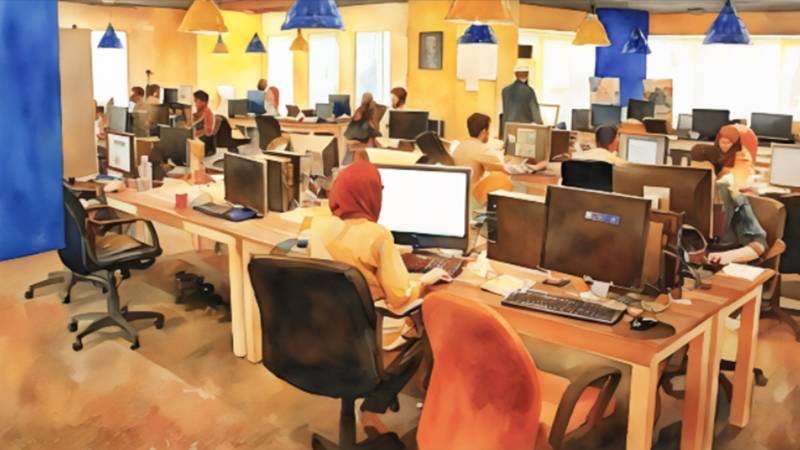
While the Pakistani government is busy in solving financial problems and bringing in foreign investments, they are ignoring something very important – which is education. Our educational system is very outdated and focuses too much on memorizing facts and theories. This has made it hard for young people to meet the demands of today’s competitive global economy. Because of this, Pakistan is unable to fully use its biggest asset, its young and energetic population.
In countries like South Korea, Germany and the United States, education is not just about learning facts. It helps students become skilled workers, business owners, and future leaders. But in Pakistan, the education system is still old fashioned. It focuses more on getting degrees than learning useful skills and memorizing things instead of being creative. The gap between what students are being taught in schools and what is needed for real jobs is a major reason why our economy is not growing.
For new graduates in Pakistan, one of the hardest questions they face in job interviews is, “What experience do you have?” This question highlights the gap between education and the job market. A new graduate, who has paid up to 1.5 million rupees for a degree, is considered unfit for a job because they lack practical experience. This isn’t a failure of the individual but of a system that values paper qualifications over hands on expertise.
In Germany, students start learning job skills while they are still in school. This helps them get real work experience before they finish school. In South Korea, schools teach a lot about science, technology, and job skills, which has made the country a leader in technology and innovation. But in Pakistan, schools still use old lessons and don’t give students enough chances to learn useful, hands-on skills.
To fix these problems, Pakistan needs to change its education system completely. The first step is to accept that the current education system is not working at all. Education shouldn’t be about memorizing books just to pass exams. It should focus on teaching students the skills they need to succeed in life and help their community.
Up to sixth grade, students should focus on basic education like reading, writing, math, and general knowledge. After that, schools should start teaching technical and job-related skills. Students should learn skills like coding, digital marketing, engineering, and other useful things to help them get the jobs needed today.
Schools and universities should collaborate with companies to give students internships, training, and hands-on experience. This will help students graduate with both knowledge and practical skills.
Students should also be encouraged to think about starting their own businesses. Adding business training to the school curriculum can teach them how to create and run a business. This will help more small businesses grow, which are very important for any country’s economy.
Changing to a skill based education system would help Pakistan in many ways. More skilled workers would create new businesses, improve productivity, and reduce unemployment. This growth would bring more foreign investments which will make the economy grow. If Pakistan is known for skilled workers and creative thinkers, it will attract more businesses and investors from all over the world.
If Pakistan teaches critical thinking and communication skills, it will have leaders who can make positive changes. A smarter and more informed young generation can hold the government accountable, bring about transparency and help stop corruption.
Countries like South Korea and Germany show us how investing in education and skills can lead to success. South Korea, which once faced economic struggles, transformed by focusing on technology and skill-building. Now, it is home to big companies like Samsung and Hyundai. Germany uses a well-known apprenticeship system, allowing students to gain real work experience while studying. This has helped Germany have one of the lowest unemployment rates in Europe.
Pakistan can also achieve success by following these practices. Our youth is just as talented and capable, they just need the right opportunities to reach their full potential.
Pakistan needs to let go of its old educational system. Instead of just giving degrees, schools should focus on helping students learn skills, gain experience and be creative. This change isn’t just about better education; it is about making Pakistan more robust for the future.
Let’s choose progress and a better future!

